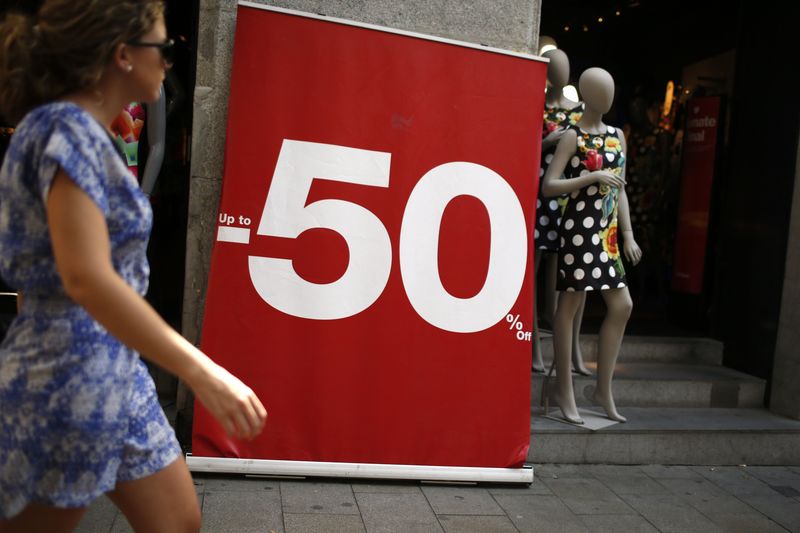By Geoffrey Smith
Investing.com -- U.S. consumer sentiment hit its brightest note in eight months at the start of the year as falling energy prices eased fears about inflation, according to a closely watched survey released on Friday.
The University of Michigan's consumer sentiment index rose to 64.6 in January, its highest since May, from 59.7 in December, with assessments of both current and future conditions improving sharply on the month.
The change in tone was in part due to perceptions that inflation is easing - if only in the near term. The 12-month expectation for inflation fell to 4.0% from 4.4% a month earlier, but respondents were more concerned about the longer-term outlook: their average expectation for inflation over the next five years actually rose 0.1% to 3.0% from 2.9%, clearly above the Federal Reserve's 2% target.
"Inflation expectations are coming back under control," said Pantheon Macroeconomics chief economist Ian Shepherdson in a note to clients, who said the uptick in longer-term inflation expectations was "more noise than signal." He expects it to return to the pre-COVID trend of between 2% and 2.5% over the next few months.
The relatively robustness Michigan survey was at odds with some other gauges of consumer sentiment, such as Redbook's research, where there has been a more pronounced decline in the willingness to spend. Shepherdson noted that the Michigan survey was more likely to correct downward given the growing signs of a slowdown in the job market.
"We expect a material weakening in the labor market in the next few months to make people nervous about job security, so a renewed deterioration in confidence is a decent bet," Shepherdson said.
The news had little effect on U.S. financial markets: stocks were still broadly flat, recovering from an early dip, by 10:50 ET (15:50 GMT).
